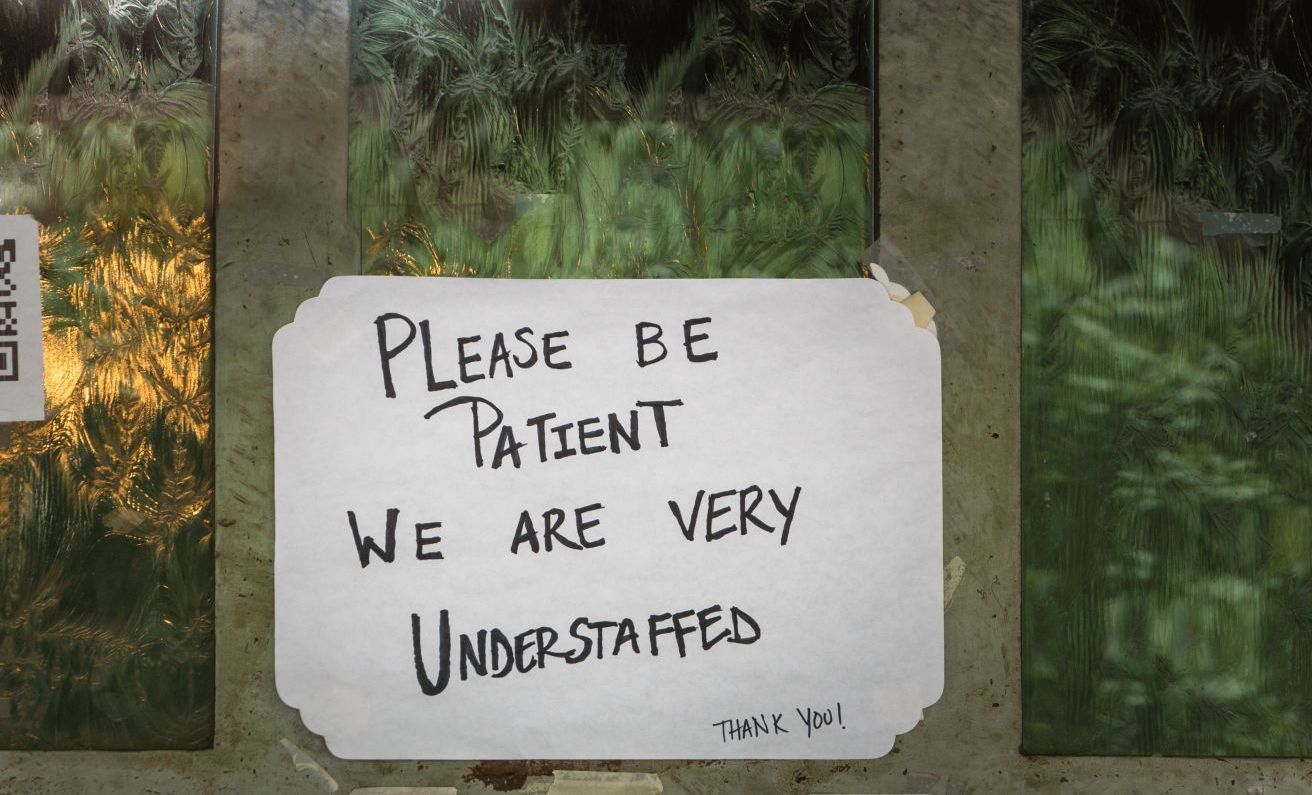
How do you deal with today's new job market? And how do you make sure your people don't hop next door tomorrow? In this episode of NOM Talks, NOM's podcast series, we talk about the turned job interview table with entrepreneurs and experts. About seizing opportunities and averting threats, because entrepreneurs are expected to do the right things and make the right choices.
Do you remember your first job interview? For years, it was common for job applicants to report with throbbing armpits to the reception desk of their potential new employers for an interview. As host of this podcast Wim A,B. states in the introduction to the topic, "The answer to the question, "Why should we hire you?" was all-important. Especially knowing that you were always one of many.'
Today, we live in a time of a severely overstretched job market in virtually every sector. 'The current reality is that there is almost no company left without a headache of unfilled job vacancies,' A,B. sums it up. What are we going to do about it? A,B. and his ever-faithful companion, sidekick Rob Drees, discuss it in this episode of NOM Talks with three guests. Irma van Steijn is an occupational and organizational psychologist and co-owner of the Maarsingh and Van Steijn practice. Jan-Bert Modderman is owner of Vlaggenindustrie Groningen. Hidde Tanja is Head of Regional Operations at recruitment agency Time to Hire.
Complex matter
From the backgrounds and expertise of the various table guests, the open door can already be seen: the challenges of the current (and future) labor market are complex and multi-faceted. Not only does staff shortage affect your business operations, entrepreneur Jan-Bert Modderman knows. It requires a different way of preparing and conducting job interviews. About that sustainable recruiting Tanja knows how to share all kinds of tips in this podcast. Moreover, the culture on the shop floor is changing. Needs are changing, Van Steijn hears. Not to mention the impact of the corona epidemic and increasing workload due to employee attrition.
By the way, it may be a little bit our own fault that we are in this situation with such a tight labor market. Or at least our nature, as human beings. For some entrepreneurs, it may feel sudden. 'It's what we're noticing now, so it feels like it's suddenly now.' But it was all really foreseeable. The human brain only wakes up when there is a problem and we are suffering from it now,' Van Steijn explains.
'Display your store beating'
Beyond the legion of examples and inspiration provided by the three guests in this episode, they more than agree on one thing: your staff is your signboard these days. You are significantly more likely to find and retain people when the working atmosphere and conditions are good. 'We rely more than in the past on trust in our employees,' says Modderman. 'When things get a little worse, you tend to step up yourself. But your people have done well in better times. They're still the same people. Express your confidence in them and ask how you can support them. With us, that has brought a lot to the working atmosphere. And also in the trust in me.'
And above all, tell the real story about your company, instead of making it look better than it is. He still encounters it regularly, says Tanja, with companies for whom he is looking for new employees. You have to showcase how your store is set up. You shouldn't have a nice story about freedom and then ask at 4:30 where someone is. Employer branding has to be good. And that takes years. Time to get started, for those who didn't already.
Mastery, autonomy and purpose
In an organization where the opportunity to find and engage employees is high, there is also space for them to discover, to make mistakes and to grow. A concept to facilitate that space was coined by Daniel H. Pink, known for his book "Drive. In it, he introduces three factors for motivation: mastery, autonomy and purpose. By mastery, Pink refers to the feeling of getting better at things that matter. Autonomy is best explained as the feeling of self-direction. Purpose is knowing that we are doing something that matters.
Do employees find these three factors satisfying? Then chances are good that they will stay with you, feel ownership and thus maximize their commitment to your organization and be a showcase for potential new employees. It does mean that your operations are set up in such a way that people come first.
According to this episode's three guests, the latter is insurmountable. People are the most important capital. Always have been. For new insights on the current job market and how to deal with it, listen to this episode of NOM Talks.


